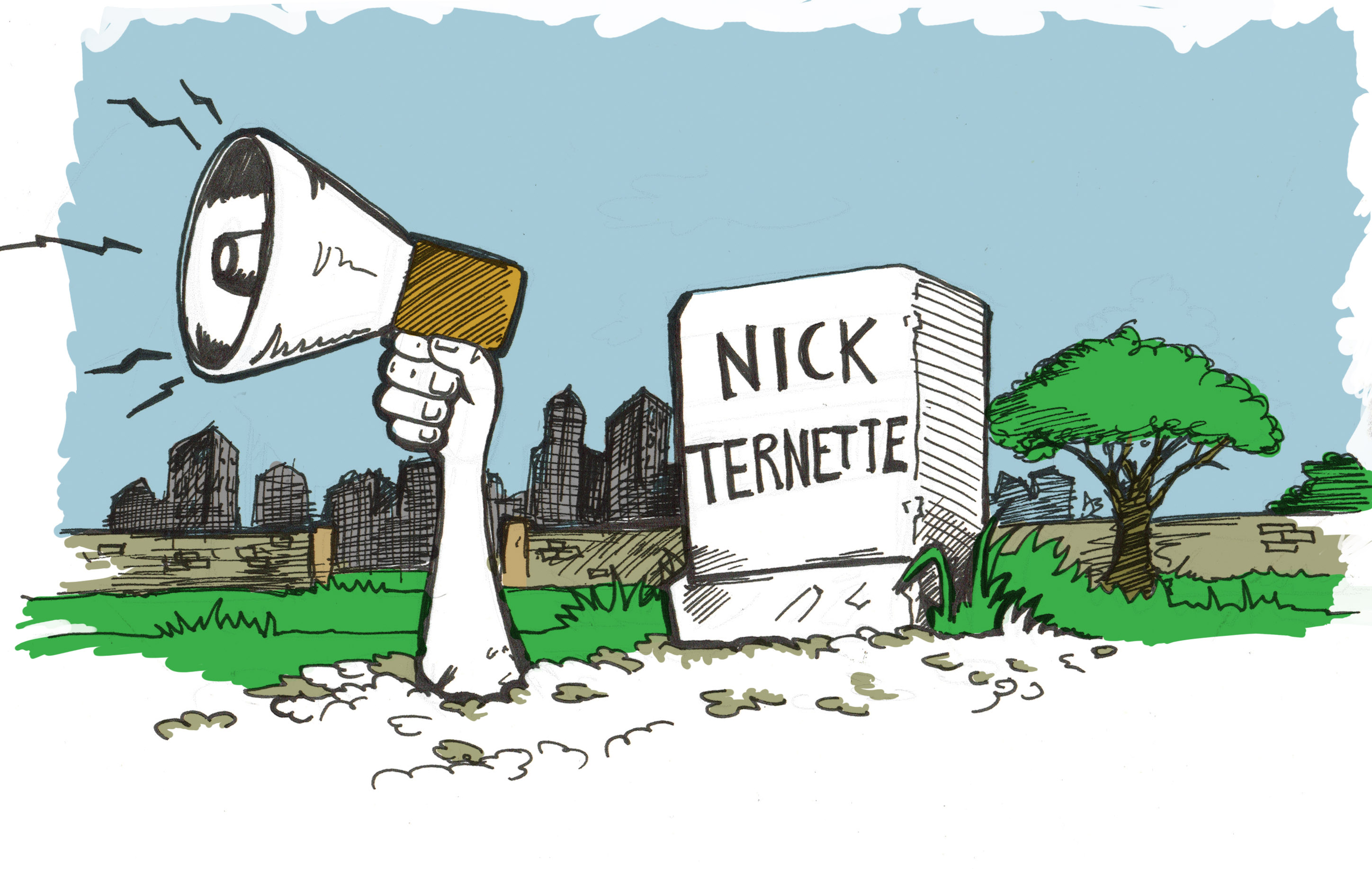Three-quarters of a year before the end of the Second World War, a child was born in the ruined city of Berlin and grew up to be perhaps the loudest voice of the political left in Winnipeg.
After moving to our fair city in 1955—and despite locals in his newfound prairie home name-calling the 10-year-old newcomer a Nazi, Ternette spent much of his adult life in this city as a tireless advocate for the exploited, underprivileged, and mistreated. His radicalism began when he was 23 when he participated in a peaceful May Day demonstration in his birth city, Berlin.
Fellow local activist Rodney Graham defined Ternette’s approach to issues: “He was not a politician – he was an activist. It was change for the less fortunate, for the underdog that he wanted. Nick Ternette was the best kind of socialist.”
He ran for numerous government offices, including mayor of Winnipeg, and for the same position in Calgary. He was a longtime peace activist who also lobbied on behalf of squeegee kids, people with disabilities, individuals living in poverty, and women’s rights; he protested increases in transit fees, concert ticket prices, use of pesticides, and the recent waste management contract negotiated for Winnipeg. These efforts are only a short list of the many projects in which he was involved and issues that concerned him.
Nominated for both the Manitoba Human Rights Achievements Award (1999) and the Order of Manitoba (2005), in 2010, when he announced his retirement from politics, he received a host of accolades. With his wife Emily, he was the co-recipient of a Lifetime Achievement Award at the Canadian Dimension “Red” Carpet Gala Awards. That same year he also won the Uniter Journalism Award, Distinguished Alumni Award from the University of Winnipeg, and two years later a Volunteer Manitoba award.
In a series of honourific tweets posted in memoriam to Ternette by the Winnipeg Sun at the time of his passing, the man was saluted with many titles, including: “Winnipeg’s Sweetheart”; “A true Winnipeg original”; “My personal superhero of social justice”; “The most sincere MB politico in generations”; “A childhood hero”; “A tough SOB that cared a lot about Winnipeg”; “The oft described activist and self described sh#_disturber”; “A strong, tenacious man with a lot of spirit and fight in him”; “One of the good guys”; “Tireless fighter”; and “Social justice champion.”
For a city whose residents find such words of praise for their late fellow citizen, it is fitting to commemorate his work by reading his own words, published posthumously in his autobiography Rebel Without a Pause.
“There’s nearly no history of the ‘60s [of social activism in Winnipeg] in our libraries here,” explained Ternette, in a radio interview with CBC’s Terry MacLeod about the book.
Ternette said he created a trust fund with the Winnipeg Foundation, which would ensure his co-author would see the book was published if unfinished before his death.
The book is published by Roseway Publishing, the social justice arm of Fernwood Publishing. The latter is a company, with offices in Winnipeg and Halifax, that produces literature challenging political themes that deal with issues of sexuality, race, class, and gender. Ternette’s book was launched at Winnipeg’s McNally Robinson at Grant Park on Monday, Nov. 4.

